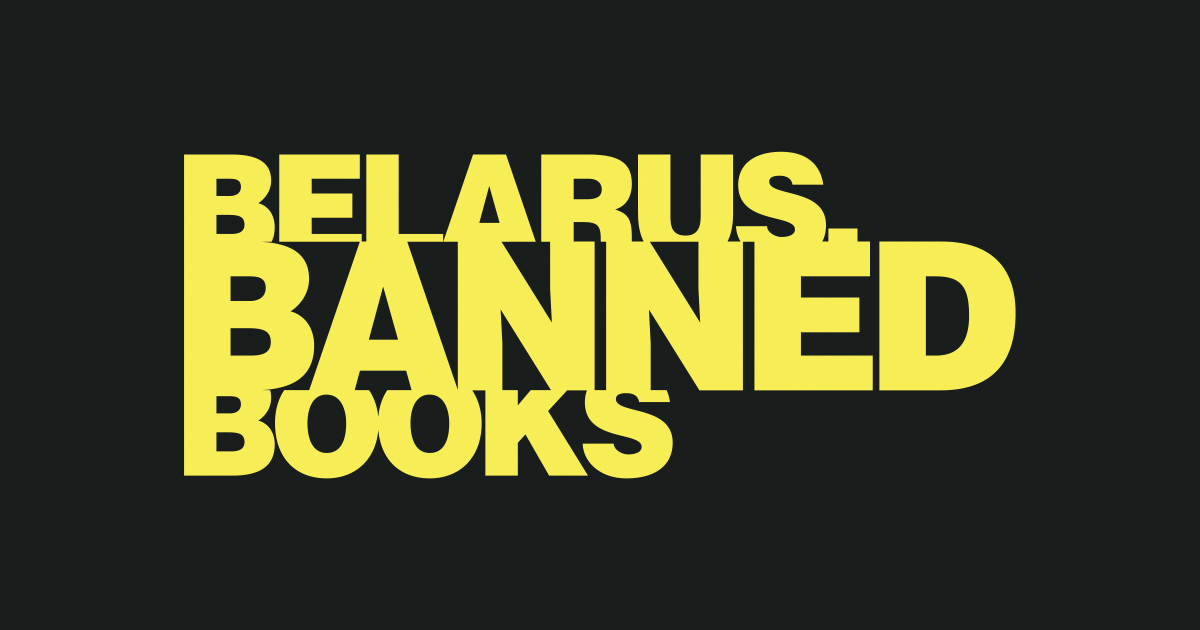
PEN Belarus monitors violations of cultural rights in Belarus. The banning of books is not only an act of censorship, but also a violation of the right to freedom of expression and access to information, as enshrined in international treaties. We document every case to ensure that the truth about cultural repression is preserved and heard. Here you will find the stories of authors and their works that the state has condemned as “extremist”, “harmful to national interests”, or “undesirable information”. These books are removed from libraries, bookshops, and school curricula — and with them, vital ideas about language, history, and freedom are erased. This website is a reminder: even when a book is banned, it does not disappear. Words endure if there are those who wish to read them.
They ban books to silence voices. We bring those voices back.
Forms of bans
- There are three types of banned book lists in Belarus:
- The official List of Extremist Materials
- The official list of materials deemed harmful to national interests
- An informal list, not publicly available, but well known to libraries and bookshops, which understand which authors must not be made accessible. This list is shaped by denunciations, visits from state ideologists, and self-censorship that has become the norm: any “mistake” may result in dismissal or imprisonment
Legal assessment and consequences
Possessing such a book at home carries the risk of a fine or imprisonment – even if the ban was issued after the fact of ownership was established. In a dedicated section, we provide a legal assessment of book bans, outlining the potential consequences of possessing such books, distributing them, or even simply keeping them in a library.
Why are books banned?
The defining feature of the Belarusian situation is the complete lack of a clear explanation. Official rulings contain no meaningful reasoning; their conclusions are made up of vague references to legislation and are indistinguishable from one another, regardless of the specific book or material concerned. From our observations, books are banned:
- For offering a Belarusian, rather than a pro-Russian, view of history
- For criticising the authorities
- For telling the truth about repression and war
- For expressing compassion, humanity, and love
- Even for a white-red-white cover design
Hear the voices of books
To understand what is happening, we invite you to explore the bans in their historical sequence — from Tsarist and Soviet times to the present day. We have created several resources gathering examples of banned books in a broader context:
- The pain of banned books – a journalistic overview of the large-scale, systematic banning of books in Belarus, which has reached unprecedented proportions since 2020.
- Independent Belarus. 1991–2025. Our present. This category includes books by those who speak about the Belarusian language, memory, dignity, and political or moral alternatives. These are the voices shaping Belarusian narratives over recent decades, now under attack.
- The Soviet Period. 1917–1991 includes the works of Soviet-era writers who survived the ideological machine but still found words of truth (words the authorities want us to forget).
- The Russian Empire. The 1800s – Roots of prohibition is dedicated to the roots of Belarusian literature, written in the people’s language and feared by the empire. Today’s regime continues to ban them, still afraid of the very idea of Belarusian identity.
- Breath of freedom. The “wrong” foreigners. This section compiles examples of banned books by international writers, from essays on democracy to novels about human dignity, love, and choice.
Numbers
Today in Belarus:
This publication has been produced with financial support from Norway and Human Rights House Foundation. The contents of this publication are the sole responsibility of PEN Belarus and can in no way be taken to reflect the views of the Government of Norway.
- 311+ books banned for political or ideological reasons
- 256+ authors under prohibition
- 5 independent publishers liquidated in the past five years *
- At least 31 writers are behind bars
This publication has been produced with financial support from Norway and Human Rights House Foundation. The contents of this publication are the sole responsibility of PEN Belarus and can in no way be taken to reflect the views of the Government of Norway.
